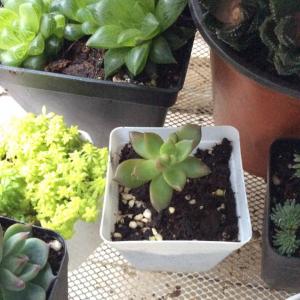Posts (221)
格桑花
2023-11-17

Introduction
Forgiveness plays a crucial role in healing and strengthening relationships. It allows for the resolution of conflict, the repair of emotional wounds, and the rebuilding of trust. By embracing forgiveness, we can let go of resentment and create space for growth, understanding, and deeper connection. In this guide, we will explore the importance of forgiveness and strategies to cultivate it in relationships.Acknowledging Hurt and Pain
Before forgiveness can occur, it's important to acknowledge and validate the hurt and pain caused by the actions or words of the other person. Consider the following steps: - Allow yourself to feel and process the emotions that arise from the hurt. - Communicate your feelings to the other person, expressing the impact their actions had on you. - Seek support from trusted friends, family, or professionals to help you navigate and heal from the pain.Cultivating Empathy and Understanding
Empathy and understanding are essential for forgiveness. Consider these strategies: - Put yourself in the other person's shoes and try to understand their perspective and motivations. - Practice active listening to gain insight into their thoughts and feelings. - Explore the context and circumstances that may have contributed to their actions.Letting Go of Resentment
Forgiveness involves releasing resentment and choosing to move forward. Consider these steps: - Recognize that holding onto resentment only prolongs the pain and hinders the healing process. - Make a conscious decision to let go of negative emotions and the desire for revenge. - Focus on self-care and engaging in activities that bring you joy and peace.Rebuilding Trust
Forgiveness is an important step towards rebuilding trust in a relationship. Consider these actions: - Communicate openly and honestly with the other person about your expectations and needs for rebuilding trust. - Give the person opportunities to demonstrate their trustworthiness through consistent actions and behavior. - Be patient and allow time for the rebuilding of trust to occur naturally.Setting Boundaries
Forgiveness does not mean forgetting or condoning harmful behavior. It's important to establish and maintain healthy boundaries. Consider these suggestions: - Clearly communicate your boundaries and expectations for the future. - Advocate for yourself and assertively express your needs. - Be prepared to enforce consequences if boundaries are violated.Practicing Self-Reflection and Growth
Forgiveness can be an opportunity for personal growth and self-reflection. Consider these steps: - Reflect on your own role in the situation and identify any patterns or behaviors that may have contributed to the conflict. - Take responsibility for your part and commit to personal growth and self-improvement. - Use the experience as a learning opportunity to strengthen your emotional resilience and communication skills.Seeking Support and Professional Help
In some cases, seeking support from trusted friends, family, or professionals can be beneficial. Consider these options: - Engage in couples therapy or relationship counseling to navigate the process of forgiveness together. - Consult with a therapist or counselor individually to work through any residual pain or trauma. - Lean on trusted friends or family members who can provide guidance and support.Conclusion
Forgiveness plays a vital role in healing and strengthening relationships. By acknowledging hurt and pain, cultivating empathy and understanding, letting go of resentment, rebuilding trust, setting boundaries, practicing self-reflection and growth, and seeking support when needed, you can embrace forgiveness and create space for healing, growth, and deeper connection. Remember, forgiveness is a process that takes time, patience, and active effort, but it can lead to profound healing and the restoration of trust and harmony in relationships.
Article
格桑花
2023-11-17

Introduction
Conflicts and disagreements are inevitable in any relationship, but how we handle them can greatly impact the health and longevity of the relationship. Resolving conflicts in a constructive and respectful manner is essential for maintaining trust, understanding, and harmony. In this guide, we will explore strategies to help you effectively resolve conflicts and disagreements in your relationships.Maintain Calm and Emotional Regulation
When conflicts arise, it's important to stay calm and regulate your emotions. Consider the following: - Take deep breaths and practice relaxation techniques to manage any anger or frustration. - Avoid reacting impulsively or saying hurtful things in the heat of the moment. - Take a break if needed to cool down and gather your thoughts before addressing the issue.Practice Active Listening
Active listening is crucial for understanding the other person's perspective and finding common ground. Consider these steps: - Give your full attention to the other person and avoid interrupting. - Reflect back what you hear to ensure understanding. - Ask clarifying questions to gain a deeper understanding of their point of view.Communicate Assertively and Respectfully
Assertive and respectful communication is key to resolving conflicts effectively. Consider these strategies: - Use "I" statements to express your feelings and needs without blaming or criticizing. - Avoid personal attacks or name-calling. - Speak in a calm and respectful tone, even if you disagree strongly.Find Common Ground
Seeking common ground helps bridge the gap between conflicting perspectives. Consider these approaches: - Focus on shared goals or interests to find areas of agreement. - Look for compromises or creative solutions that meet both parties' needs. - Emphasize the importance of the relationship and the desire to find a resolution that benefits both sides.Practice Empathy and Perspective-Taking
Empathy and perspective-taking can foster understanding and compassion. Consider these steps: - Put yourself in the other person's shoes and try to understand their feelings and concerns. - Validate their emotions and show that you genuinely care about their perspective. - Express empathy through understanding and supporting their point of view, even if you don't fully agree.Use "I" Statements and Express Needs
Expressing your needs and concerns is crucial for finding a resolution. Consider these suggestions: - Use "I" statements to clearly communicate how the conflict is affecting you. - Express your needs and expectations for a resolution. - Avoid making assumptions about the other person's intentions or motives.Seek Mediation or Professional Help
In some cases, seeking outside help can be beneficial for resolving conflicts. Consider these options: - Engage the assistance of a neutral third party, such as a mediator or counselor, to facilitate communication and find a resolution. - Attend couples therapy or relationship counseling to learn constructive conflict resolution techniques. - Seek advice from trusted friends or family members who can provide objective perspectives.Learn from the Conflict
Every conflict can be an opportunity for growth and learning. Consider the following: - Reflect on the conflict and identify any patterns or triggers that may be contributing to recurring disagreements. - Learn from the experience and develop strategies to prevent similar conflicts in the future. - Use the conflict as an opportunity to deepen your understanding of each other and strengthen the relationship.Conclusion
Resolving conflicts and disagreements in relationships requires patience, empathy, and effective communication. By maintaining calm and emotional regulation, practicing active listening, communicating assertively and respectfully, finding common ground, practicing empathy and perspective-taking, using "I" statements and expressing needs, seeking mediation or professional help when necessary, and learning from the conflict, you can navigate conflicts in a constructive and healthy manner. Remember, conflicts are a normal part of relationships, and resolving them in a respectful and positive way can lead to a stronger and more fulfilling partnership.
Article
格桑花
2023-11-17

Introduction
Having a supportive network of friends and social connections is essential for our well-being and overall happiness. These relationships provide us with emotional support, companionship, and a sense of belonging. Building and nurturing a supportive network requires effort and intention. In this guide, we will explore strategies to help you build a strong social network and meaningful friendships.Be Open and Approachable
Being open and approachable is key to building new friendships. Consider the following: - Smile and maintain positive body language when interacting with others. - Show genuine interest in getting to know people by asking questions and actively listening. - Be approachable by being friendly, welcoming, and non-judgmental.Participate in Group Activities
Engaging in group activities can provide opportunities to meet like-minded individuals. Consider these steps: - Join clubs, hobby groups, or social organizations that align with your interests. - Attend community events, workshops, or classes to meet people with shared passions. - Volunteer for causes you care about to connect with others who share your values.Utilize Online Platforms
Online platforms offer a convenient way to connect with people who share your interests. Consider: - Joining online communities or forums related to your hobbies or interests. - Participating in virtual events, webinars, or social media groups relevant to your passions. - Engaging in meaningful conversations and building connections with like-minded individuals online.Show Genuine Interest in Others
Building a supportive network requires developing meaningful connections. Consider these suggestions: - Ask people about their interests, goals, and experiences. - Listen actively and show empathy and understanding in conversations. - Remember details about people's lives and follow up on topics of importance to them.Be Reliable and Supportive
Being a reliable and supportive friend is crucial in building strong connections. Consider these actions: - Be there for your friends during difficult times by offering your support and empathy. - Follow through on commitments and be dependable when others need you. - Celebrate your friends' successes and be their cheerleader.Initiate and Maintain Communication
Initiating and maintaining communication is vital for nurturing friendships. Consider these tips: - Reach out to friends regularly to check in and see how they're doing. - Plan and organize social activities or get-togethers to keep connections strong. - Use various communication channels, such as calls, texts, or video chats, to stay connected.Be Authentic and Vulnerable
Building deeper connections requires authenticity and vulnerability. Consider the following: - Share your thoughts, feelings, and experiences honestly and openly. - Be willing to listen and support friends when they share their vulnerabilities. - Create a safe space where people feel comfortable being their true selves.Prioritize Quality over Quantity
Focus on building meaningful relationships rather than accumulating a large number of acquaintances. Consider these points: - Invest time and energy in a few close friendships rather than spreading yourself too thin. - Surround yourself with people who uplift and support you, rather than those who drain your energy. - Foster relationships that bring joy, understanding, and a sense of belonging.Conclusion
Building a supportive network of friends and social connections is crucial for our well-being and happiness. By being open and approachable, participating in group activities, utilizing online platforms, showing genuine interest in others, being reliable and supportive, initiating and maintaining communication, being authentic and vulnerable, and prioritizing quality over quantity, you can build a strong social network that provides you with emotional support, companionship, and a sense of belonging. Remember, building and nurturing friendships takes time and effort, but the rewards of having a supportive network are invaluable.
Article
格桑花
2023-11-17

Introduction
Empathy and understanding are crucial elements in building and maintaining healthy relationships. They help foster emotional connection, deepen intimacy, and create a safe and supportive environment for both partners. Cultivating empathy and understanding requires active effort and practice. In this guide, we will explore some strategies to help you cultivate empathy and understanding in your relationships.Active Listening
Active listening is an essential skill for cultivating empathy and understanding. Practice the following: - Give your full attention to your partner when they are speaking. - Avoid interrupting or formulating responses in your mind while they are talking. - Show genuine interest and ask clarifying questions to gain a deeper understanding of their perspective.Practice Perspective-Taking
Try to put yourself in your partner's shoes to better understand their thoughts and feelings. Consider: - Imagining how you would feel in their situation. - Reflecting on their past experiences and how they may be influencing their current emotions. - Avoid making assumptions and seek clarification if needed.Validate Feelings
Validation is a powerful way to demonstrate empathy and understanding. Follow these steps: - Acknowledge and accept your partner's emotions without judgment. - Let them know that their feelings are valid and understandable. - Avoid minimizing or dismissing their emotions, even if you may not fully relate to them.Practice Open and Honest Communication
Open and honest communication builds the foundation for empathy and understanding. Consider these strategies: - Express your thoughts, feelings, and needs clearly and respectfully. - Encourage your partner to do the same, creating a safe space for open dialogue. - Be receptive and non-defensive when receiving feedback or discussing sensitive topics.Show Empathy Through Actions
Demonstrate empathy through your actions to reinforce understanding and connection. Consider: - Engaging in acts of kindness and support to show that you care. - Offering help or assistance when your partner is going through a tough time. - Being patient and understanding, especially during challenging moments.Seek to Understand Before Being Understood
Prioritize understanding your partner's perspective before trying to make yourself understood. Try the following: - Focus on listening and understanding their viewpoint without immediately jumping to defend your own. - Ask questions to gain clarity and demonstrate interest in their thoughts and feelings. - Once you have understood their perspective, express your own feelings and thoughts in a respectful manner.Practice Empathy and Understanding Towards Yourself
Cultivating empathy and understanding towards yourself is equally important. Consider these steps: - Treat yourself with kindness and compassion. - Acknowledge and validate your own emotions and needs. - Avoid self-judgment and practice self-care to replenish your emotional well-being.Conclusion
Cultivating empathy and understanding in relationships is a continuous journey that requires active effort and practice. By actively listening, practicing perspective-taking, validating feelings, practicing open and honest communication, showing empathy through actions, seeking to understand before being understood, and practicing empathy and understanding towards yourself, you can create a deeper emotional connection and a more supportive and harmonious relationship. Remember, empathy and understanding are built through consistent efforts and a genuine desire to connect with and understand your partner's experiences and emotions.
Article
格桑花
2023-11-17

Introduction
Setting healthy boundaries in relationships is essential for establishing and maintaining a strong and respectful connection with your partner. Boundaries define what is acceptable and unacceptable in terms of behavior, communication, and personal space. They help create a sense of safety, trust, and mutual understanding. In this guide, we will explore the importance of setting healthy boundaries in relationships and how they contribute to overall relationship well-being.Establishing Self-Respect
Setting healthy boundaries is an act of self-respect. It shows that you value your own needs, feelings, and well-being. By setting boundaries, you communicate that you deserve to be treated with respect and that your limits and boundaries should be honored.Communication and Understanding
Boundaries facilitate open and honest communication. They provide clear guidelines for how you wish to be treated and what you are comfortable with. By expressing your boundaries, you give your partner the opportunity to understand and respect your needs, fostering better communication and understanding in the relationship.Maintaining Personal Identity
Healthy boundaries allow you to maintain your personal identity within the relationship. They ensure that you have time and space to pursue your own interests, hobbies, and goals. By having personal boundaries, you can nurture your individuality and prevent feelings of suffocation or losing yourself in the relationship.Building Trust and Safety
Boundaries create a sense of trust and safety within the relationship. They provide a framework for behavior and interactions, allowing both partners to feel secure and respected. When boundaries are respected, trust is built, and a foundation for a healthy relationship is established.Preventing Resentment and Conflict
Setting and respecting boundaries can prevent resentment and conflict from arising in the relationship. When boundaries are crossed or ignored, it can lead to frustration, anger, and hurt feelings. By clearly communicating and upholding your boundaries, you can prevent misunderstandings and conflicts, fostering a more harmonious and peaceful relationship.Honoring Individual Needs
Boundaries ensure that both partners' individual needs are honored and met. Each person has unique preferences, limits, and comfort levels. By setting boundaries, you can create a space where both partners' needs are acknowledged, leading to a more balanced and fulfilling relationship.Promoting Emotional and Mental Well-being
Healthy boundaries contribute to emotional and mental well-being in a relationship. They allow for self-care, self-expression, and emotional safety. By having boundaries, you can protect yourself from emotional harm, maintain your own mental health, and create an environment that supports the well-being of both partners.Conclusion
Setting healthy boundaries in relationships is crucial for maintaining respect, trust, and overall relationship well-being. By establishing self-respect, facilitating communication and understanding, maintaining personal identity, building trust and safety, preventing resentment and conflict, honoring individual needs, and promoting emotional and mental well-being, you can create a healthy and balanced dynamic with your partner. Remember, setting boundaries is a continuous process that requires open communication, mutual understanding, and respect from both partners.
Article
格桑花
2023-11-17

Introduction
Achieving a healthy balance between independence and togetherness is essential in maintaining a strong and fulfilling romantic partnership. It's important to nurture your individuality and personal growth while also fostering a sense of closeness and connection with your partner. In this guide, we will explore some key strategies for finding the right balance between independence and togetherness in your relationship.Communicate Your Needs
Open and honest communication is crucial when it comes to balancing independence and togetherness. Consider the following: - Clearly express your needs for personal space, alone time, and independence. - Discuss your expectations regarding shared activities, quality time, and the level of togetherness you both desire. - Be receptive to your partner's needs and find compromises that meet both of your requirements.Foster Individual Hobbies and Interests
Maintaining your individual hobbies and interests is important for personal growth and fulfillment. Consider these strategies: - Encourage and support each other in pursuing individual passions and hobbies. - Allocate time for pursuing individual interests without feeling guilty or neglecting the relationship. - Share your experiences and discoveries with each other, allowing your partner to be a part of your individual growth.Set Boundaries
Establishing and respecting boundaries is essential for maintaining a healthy balance. Consider the following steps: - Clearly communicate your boundaries regarding personal space, privacy, and time alone. - Respect your partner's boundaries and avoid crossing them without their consent. - Regularly reassess and adjust boundaries as needed to accommodate each other's evolving needs.Schedule Quality Time Together
Carving out quality time for shared experiences is vital for fostering a sense of togetherness. Consider these suggestions: - Schedule dedicated time for shared activities, date nights, or weekend getaways. - Engage in activities that you both enjoy and that strengthen your emotional connection. - Be present and fully engaged during your quality time, avoiding distractions and focusing on each other.Maintain Independence Within the Relationship
Independence doesn't mean detachment from your partner; it means maintaining your own identity within the relationship. Consider: - Cultivating self-awareness and maintaining a strong sense of self outside of the relationship. - Making decisions independently while considering the impact on the relationship. - Recognizing that your partner's independence and growth are equally important to the health of the relationship.Practice Openness and Trust
Openness and trust are essential for balancing independence and togetherness. Consider these actions: - Share your thoughts, feelings, and aspirations with your partner. - Trust each other's judgment and decisions, allowing for independence and individual growth. - Communicate any concerns or insecurities that arise, addressing them with empathy and understanding.Embrace Compromise
Finding a balance between independence and togetherness often requires compromise. Consider these steps: - Seek common ground and find solutions that honor both partners' needs and desires. - Be willing to make adjustments and accommodate each other's preferences. - Remember that compromise is a two-way street, requiring effort and understanding from both partners.Conclusion
Balancing independence and togetherness in a romantic partnership is crucial for maintaining a healthy and fulfilling relationship. By communicating your needs, fostering individual hobbies and interests, setting boundaries, scheduling quality time together, maintaining independence within the relationship, practicing openness and trust, and embracing compromise, you can create a strong foundation that allows both partners to grow individually while nurturing their connection as a couple. Remember, finding the right balance is an ongoing process that requires continuous communication, understanding, and mutual respect.
Article
格桑花
2023-11-17

Introduction
Rebuilding trust in a damaged relationship can be a challenging and delicate process. It requires commitment, patience, and open communication from both parties involved. While healing and rebuilding trust take time, it is possible with effort and a willingness to work through the issues. In this guide, we will explore some important steps you can take to rebuild trust and foster growth in your damaged relationship.Acknowledge the Hurt
Both parties need to acknowledge the pain and hurt that has been caused. It is important to: - Take responsibility for your actions that contributed to the damage. - Validate and empathize with the emotions and pain experienced by your partner. - Avoid minimizing or dismissing their feelings, even if it may be uncomfortable to confront.Open and Honest Communication
Rebuilding trust requires open and honest communication. This involves: - Creating a safe space for open dialogue where both parties can express their feelings and concerns. - Listening actively to each other without judgment or defensiveness. - Being transparent and sharing information willingly to rebuild a foundation of honesty.Apologize Sincerely
A sincere and heartfelt apology is a crucial step towards rebuilding trust. Consider the following: - Take ownership of your mistakes and express genuine remorse for the pain caused. - Be specific in acknowledging the actions or behaviors that led to the damage. - Avoid making excuses or shifting blame onto others.Rebuild Consistency and Reliability
Consistency and reliability are essential in rebuilding trust. Focus on: - Following through on your commitments and promises. - Being dependable and reliable in your actions and words. - Demonstrating consistent behavior that aligns with your intentions to rebuild trust.Establish Boundaries and Accountability
Setting clear boundaries and establishing accountability can help rebuild trust. Consider: - Discussing and agreeing upon boundaries that are important to both parties. - Being accountable for your actions and holding yourself and your partner accountable as well. - Honoring the boundaries established to create a sense of safety and security.Seek Professional Help if Needed
Sometimes, the healing process can benefit from the assistance of a professional. Consider: - Seeking couples therapy or counseling to facilitate open communication and provide guidance. - Working with a therapist individually to address personal issues that may be impacting the relationship. - Engaging in workshops or support groups that focus on rebuilding trust and fostering healthy relationships.Practice Patience and Forgiveness
Rebuilding trust takes time, and it is important to practice patience and forgiveness. Remember: - Healing is a gradual process, and setbacks may occur along the way. - Be patient with each other's progress and allow space for growth. - Practice forgiveness, not forgetting, but letting go of resentment and moving forward.Conclusion
Rebuilding trust in a damaged relationship is challenging, but with commitment, open communication, and a willingness to work through the issues, it is possible to heal and grow together. By acknowledging the hurt, practicing open and honest communication, offering sincere apologies, rebuilding consistency and reliability, establishing boundaries and accountability, seeking professional help if needed, and practicing patience and forgiveness, you can start on the path towards rebuilding trust and creating a healthier and stronger relationship. Remember, trust is built through consistent actions and words over time, so be patient and committed to the healing process.
Article
格桑花
2023-11-17

Introduction
Long-distance relationships can be challenging, but with the right strategies, you can maintain a strong connection and keep your relationship thriving. Communication, trust, and shared experiences are key elements to focus on when navigating a long-distance relationship. In this guide, we will explore some helpful tips to help you maintain connection and strengthen your bond.Prioritize Communication
Communication is crucial in any relationship, but it becomes even more important in a long-distance one. Make an effort to: - Establish regular communication routines, such as daily video calls or scheduled phone conversations. - Utilize various communication platforms like video calls, text messaging, emails, or handwritten letters. - Be open and honest about your feelings, concerns, and expectations.Set Clear Expectations
Discuss and establish clear expectations with your partner to ensure both of you are on the same page. Consider: - Discussing your goals, boundaries, and plans for the future. - Setting realistic expectations for the frequency and quality of communication. - Being transparent about your needs and discussing how you can support each other.Plan Visits and Shared Experiences
Creating opportunities to spend time together is essential for maintaining a sense of closeness. Consider the following: - Plan visits in advance to have something to look forward to. - Explore new places together by meeting in different locations or taking trips together. - Engage in shared activities like watching movies simultaneously, playing online games, or cooking together through video calls.Trust and Support Each Other
Building and maintaining trust is crucial for the success of any relationship. Focus on: - Being open and transparent about your daily activities and social interactions. - Avoiding unnecessary jealousy or suspicion by trusting your partner unless there are legitimate concerns. - Supporting each other's personal growth and goals while maintaining your own independence.Keep the Romance Alive
Maintaining a romantic connection is important, even when physically apart. Try these suggestions: - Surprise each other with thoughtful gestures, like sending care packages or handwritten letters. - Plan virtual date nights where you can dress up, enjoy a meal together, or watch a movie simultaneously. - Engage in intimate conversations and express your love and affection regularly.Share Your Lives
Being involved in each other's lives helps create a sense of closeness. Consider: - Sharing daily updates, stories, and experiences to stay connected. - Being supportive and actively listening when your partner shares their challenges or achievements. - Including your partner in your social circles by introducing them to friends and family through video calls or visits.Focus on Self-Care
Taking care of yourself is important for your overall well-being and the strength of your relationship. Remember to: - Prioritize self-care activities that help you maintain a positive mindset and manage stress. - Pursue hobbies, interests, and personal goals to maintain a sense of fulfillment and independence. - Communicate your self-care needs to your partner and encourage them to do the same.Conclusion
Maintaining a strong connection in a long-distance relationship requires effort, communication, and trust. By prioritizing communication, setting clear expectations, planning visits and shared experiences, fostering trust, keeping the romance alive, sharing your lives, and focusing on self-care, you can navigate the challenges of distance and nurture a thriving relationship. Remember, open and honest communication, along with understanding and support, are vital ingredients for long-distance love to flourish.
Article
格桑花
2023-11-17

Introduction
Communication is the foundation of any healthy relationship. It plays a crucial role in fostering understanding, resolving conflicts, and building trust. By employing effective communication strategies, you can strengthen your relationships and create a deeper connection with others. In this guide, we will explore some key strategies for enhancing communication and building stronger relationships.Active Listening
Active listening involves fully focusing on the person speaking and giving them your undivided attention. Practice the following techniques: - Maintain eye contact and use non-verbal cues to show interest. - Avoid interrupting and allow the speaker to finish before responding. - Reflect back what you've heard to ensure understanding and show empathy.Open and Honest Communication
Open and honest communication builds trust and creates a safe space for meaningful conversations. Consider the following tips: - Express your thoughts, feelings, and needs clearly and directly. - Be respectful, even when discussing sensitive topics or expressing disagreement. - Encourage others to share their thoughts and actively listen without judgment.Non-Verbal Communication
Non-verbal cues can convey messages and emotions, sometimes more effectively than words. Pay attention to: - Body language, such as facial expressions, gestures, and posture. - Tone of voice, volume, and pitch. - Touch, which can convey comfort, support, or affection.Empathy and Understanding
Empathy is the ability to understand and share another person's feelings. Cultivate empathy by: - Putting yourself in the other person's shoes and trying to see things from their perspective. - Validating their emotions and acknowledging their experiences. - Practicing compassion and showing kindness towards their feelings and needs.Emotional Awareness and Regulation
Being aware of your own emotions and effectively managing them can lead to healthier communication. Consider the following steps: - Recognize and label your emotions before expressing them. - Take time to calm down if you're feeling overwhelmed or angry. - Use "I" statements to express your emotions without blaming others.Conflict Resolution
Conflicts are a natural part of any relationship, but how you handle them can make a significant difference. Use these strategies for effective conflict resolution: - Approach conflicts with a willingness to understand and find a solution. - Practice active listening and express your thoughts and feelings without attacking or blaming. - Look for common ground and work together to find compromises.Regular Check-Ins
Regularly checking in with the people in your life can help maintain strong relationships. Consider the following: - Schedule dedicated time to connect and have meaningful conversations. - Ask open-ended questions to encourage deeper discussions. - Show genuine interest in their lives, experiences, and well-being.Appreciation and Gratitude
Expressing appreciation and gratitude can strengthen relationships and foster a positive atmosphere. Consider these practices: - Acknowledge and thank others for their efforts, support, and contributions. - Celebrate achievements and milestones together. - Practice gratitude by expressing appreciation for the small things.Conclusion
Effective communication is essential for building stronger relationships. By practicing active listening, open and honest communication, non-verbal cues, empathy, emotional awareness, conflict resolution, regular check-ins, and appreciation, you can foster deeper connections and create a supportive environment for your relationships to thrive. Remember, building strong relationships requires ongoing effort and a commitment to effective communication strategies.
Article
格桑花
2023-11-16

1. Communication: The Foundation of Connection
All relationships are based on the foundation of effective communication. Talking is not enough; you also need to actively listen and show empathy and understanding. Open, sincere communication fosters trust and encourages people to openly share their feelings, ideas, and worries. Giving your loved ones your whole attention in a world full of distractions makes them feel validated and improves your relationship. Effective communication guarantees that misinterpretations are kept to a minimum and that disagreements are settled amicably and respectfully.2. Empathy and Understanding: Walking in Each Other's Shoes
The foundation of deep relationships is empathy, or the capacity to comprehend and experience another person's emotions. By enabling us to empathize with our loved one's feelings, we can validate their experiences and provide them with a sense of community. Putting ourselves in other people's shoes helps us understand different viewpoints, which fosters compassion and strengthens the emotional bonds that unite us. Respecting one another's differences and being aware of one another's vulnerabilities helps to create a welcoming environment where people may be happy being who they truly are.3. Quality Time: Cherishing Moments Together
Spending quality time with our loved ones has become increasingly important in our hectic lives. Whether it's a lunch together, a stroll, or an emotional chat, these times of togetherness generate enduring memories and deepen people's emotional bonds. Spending quality time together enhances the connection and strengthens the sense of importance shared by allowing for sincere conversations, laughing, and the creation of shared experiences.4. Trust and Respect: The Cornerstones of Lasting Bonds
Respect and trust are the cornerstones upon which all relationships are built. Since trust is the cornerstone of emotional intimacy, people can be honest and open with one another. Relationships thrive in a setting of stability and dependability when there is trust. Respect, on the other hand, recognizes the value and uniqueness of individuals. It is essential to understand one another's boundaries and decisions and to settle disputes peacefully. Unconditional love and affection can flourish in a setting where trust and respect coexist.5. Forgiveness and Patience: Nurturing Growth in Relationships
There are difficulties in every relationship. Inevitable components of all human encounters are disagreements, miscommunications, and errors. The capacity for patience and forgiveness is what distinguishes good relationships. When there is forgiveness, the weight of old grudges is lifted from both sides, enabling the relationship to improve and heal. Furthermore, it is important to have patience, which recognizes that meaningful change and personal development need time. An environment of acceptance and support is created when people tolerate one another's shortcomings and give each other space to improve.6. Self-Care and Individuality: Balancing Independence and Togetherness
Though self-care and preserving one's individuality are equally vital, partnerships can benefit from connection. Every individual in a partnership possesses distinct qualities, interests, and feelings. Your relationships are strengthened and your loved ones' lives are made richer when you support and encourage them to follow their passions and personal development. The secret is balance: a happy and satisfying relationship is produced by cherishing connection while preserving one's individuality.Conclusion
In the world of relationships, the trip is just as significant as the final destination. It takes consistent work, tolerance, and a vast supply of love and understanding to cultivate happy, healthy relationships. People can build long-lasting and profoundly fulfilling relationships by valuing good communication, empathy, spending quality time together, trust, respect, forgiveness, and self-care. Sincere relationships are the threads that lend warmth, color, and significance to the tapestry of life. With open hearts and a sincere desire to build enduring relationships that enrich, uplift, and complete our lives, let us negotiate the complex patterns of human connection.
Article
Related Users
Elite Article

























